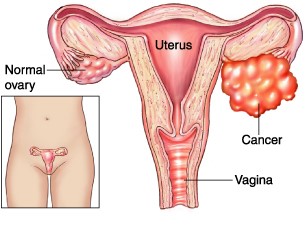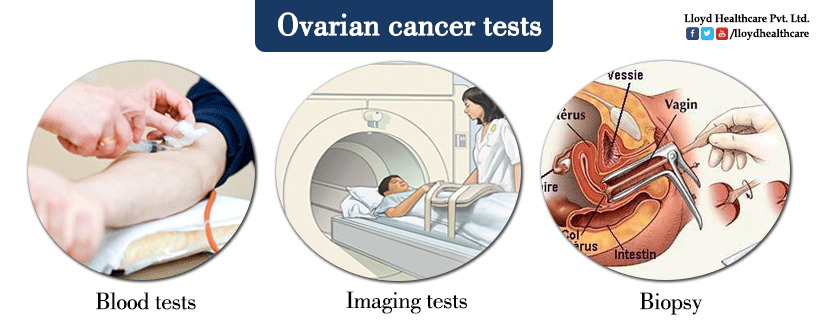This Disease Is Called The "Silent Killer" And It Affects 500 Women In Malaysia Yearly
70% of women are only diagnosed at the third or fourth stage of this disease.
A report by Bernama last year said that around 100,000 Malaysians suffer from cancer every year, and most of them are women
Deputy Health Minister Datuk Seri Dr Hilmi Yahaya made the statement on 3 April 2016.
"It is estimated that one in four Malaysians will suffer from cancer by the age of 75 years, and among the reasons is the increase in population and a longer life span.
"We expect that by 2020, there will be an increase of 15% in the number of cancer cases, and this comprises senior citizens," explained Dr Hilmi.
Dr Hilmi also listed the five main cancers that affect Malaysians, namely:
1. Breast cancer - 14.5%
2. Intestinal cancer - 12.1%
3. Lung cancer - 11.8%
4. Cervical cancer - 5.7%
5. Throat cancer - 5.4%
In 2014, cancer was the fourth major cause of death in government hospitals at 13.02%.
Speaking of women and cancer, today, 8 May, is World Ovarian Cancer Day. It is a day dedicated to increasing awareness and educating the community about ovarian cancer and its symptoms.
While the number may not seem like a lot, know that 70% of women are diagnosed at the third or fourth stage of the disease, limiting and lowering their chances of recovery.
Dubbed as the "silent killer", the symptoms of the ovarian cancer are very hard to detect so it usually goes unnoticed until it is at an advanced stage.
What is ovarian cancer and who are at risk of developing it?
Ovarian cancer is the cancer of the ovaries and is usually more commonly seen in elderly women, between the ages of 50 to 59. However, there is a possibility of it developing early in women with an inherited gene mutation. The genes breast cancer gene 1 (BRCA1) and breast cancer gene 2 (BRCA2) can increase a woman's risk of developing ovarian cancer.
Other factors that may influence a woman's risk of developing ovarian cancer are:
2. History of breast cancer - If you had or have breast cancer, there is an increased risk of you developing ovarian cancer.
3. Long-term usage of estrogen hormone replacement therapy
4. Women who became pregnant after that age of 35 and carried the pregnancy to full term. However, breastfeeding is said to reduced the risk of getting ovarian cancer.
5. Usage of oral contraceptives - Women who have been taking birth control pills for an extended period of time have a lower risk of developing ovarian cancer. Note that oral contraceptives are however linked to other types of cancer including breast and cervical.
According to the Malaysian Oncology Society, women with ovarian cancer do not usually show any symptoms and it can be hard to diagnose as it may mimic symptoms of less serious conditions like indigestion and bloating
Here are some common symptoms of ovarian cancer:
- abdominal discomfort/pain ( gas, indigestion, pressure, swelling, bloating, cramps)
- nausea
- diarrhoea
- constipation or frequent urination
- loss of appetite
- unexplained weight gain or loss
- abnormal vaginal bleeding
However, having these symptoms is not a confirmation that a woman has ovarian cancer, which is why she should consult a doctor should she experience any of these symptoms.
After the doctors identify these symptoms, patients will then have to go through a series of tests for the doctors to confirm that they do have ovarian cancer
If the doctors think that the patient may have ovarian cancer, they will usually conduct a few imaging tests including ultrasound (transvaginal ultrasound), CT scans, MRIs, and PET scans. These tests will help them determine where exactly the tumour is at, how large it is and the stage of the cancer.
A blood test will also be conducted to test for the presence of a protein called CA-125, which can be released by certain ovarian cancers. If the doctors find any suspicious tumours or spots, they may conduct a biopsy to check for presence of ovarian cancer.
There are four stages of ovarian cancer:
Stage 1 - Cancer is limited to the ovary.
Stage 2 - Cancer is within the organ surrounding the hip
Stage 3 - Cancer is within the abdominal cavity
Stage 4 - Cancer has spread to distant organs
Advanced stages of ovarian cancer are usually fatal or very difficult to treat. Thus, the sooner the cancer is detected, the better chance the patient has for recovery. Only 15% of ovarian cancers are diagnosed at stage 1.
Note: The cover image is the surgery wound of an ovarian cancer survivor, Priscilla Jenn Li - a courageous young woman who battled cancer last year.

